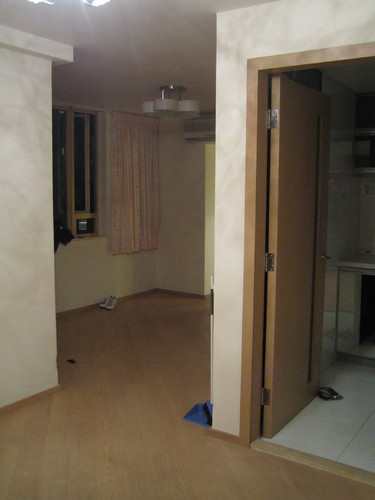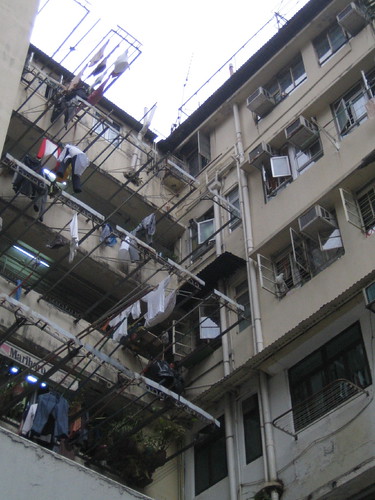
The other night I was working late and it was about 930pm when I was done. As I cruised along the very long escalator to the ground floor, I resolved to take a taxi home. I wanted to get home quick so I could selfishly play with my nephew before his bedtime (I had missed out on nephew-time for a few nights already).
At the taxi stand there was of course a queue. Many taxis with red 'hired' or 'on call' signs zoomed by. Every 5 minutes or so, an available taxi would come around the bend and stop at the stand. I figured that wasn't so bad for a Thursday night, at least the demand was slowly being fed. I should be so lucky.
At the head of the queue, the good flow ended. Even the available taxis were 'changing shift' to venture only to their specific destinations. Many, like myself, were frustrated and some resorted to booking a taxi. I recalled then two experiences: one, working at Shaw Towers years ago, a colleague advised then, I should work till midnight because that's when the taxis come out. And two, a present colleague based in Hong Kong was in town for a meeting, and told other visiting colleagues from Europe that she had given up on flagging down a taxi in Singapore city in the evenings or when it rained.
Sigh.
A regular person's inability to flag a taxi off the streets is a serious matter. It makes ordinary Singaporeans angry, knowing they're at the mercy of a service provider. It makes us angrier that the only feasible solution seems to forking out money to solve the problem. We feel like we're being taken for a ride, by the drivers, the taxi companies and the council that comes up with senseless rules and policies. (Yeah $3 more for being picked up in the city. Aren't there enough passengers there already?) Anger leads to hate, Yoda said, and hate leads to the Dark Side.
This matter speaks of a greedy ill manifesting in monopolies. We're already seeing how crappy things can turn with cable TV. The powers that be think that they can solve/ have solved the problem of supposedly insufficient taxi numbers by introducing more players into the market, under the guidance of some transport council. Unfortunately, they do not understand the real problem, a very human ailment, greed.
Corporations want more profit --> rents out taxis at high cost --> taxi drivers need to make more $ --> taxi drivers wait for bookings in the city from which they make at least $5 more per ride --> taxis scoot around the city waiting for passengers to give inSigh. Doesn't take a genius to figure out that we're mostly at the mercy of others.
So solution time. Public fury I think is one way the rulesetters can be made to listen. This is however unlikely in sensible Singapore.
If someone could set up a taxi company that broke the rules and put the paying passenger first, it would send a strong signal to the other companies to 'wake up their ideas'. We need a game changer. Here's what I would do if I ran this company:
1. No dumb charges from city pickups. Only ERP.
2. Call to book at no charge. In fact, I'd give a 10% discount like they do in Hong Kong.
3. No rubbish peak hour charges. No extra charges for airport pickups.
4. Roadside pickups at regular cost but given point 2, who'd wait by the kerb?
5. Ambush queues with instant taxis. Why wait for the competition to show up? How about a fleet of taxis showing up on a schedule? That'll help manage one's overtime, yes?
6. Starting fares at $4. That's the only perceived disadvantage but soon passengers will realise the good deal they're getting and that'll build loyalty.
7. Reward loyalty.
There's surely lots more to figure out but this is where I'd start. Disruption - I learned that from the last place I worked.
 No not the final frontier. I'd like to bring up living space especially since I've been pouring over the weekend classifieds looking for a suitable flat of late. I think I need a 3 bedroom 1000 square foot space. Some would say unnecessary but I'd like it. Space to not clutter the bedroom, space to lounge around in front of the TV, space to keep empty. Waste of money some would say, with the cost of housing jumping over the moon. But therein also lies the advantage. The bigger the piece of the pie you get now the more valuable it will be later. Cash in and retire in Phuket.
No not the final frontier. I'd like to bring up living space especially since I've been pouring over the weekend classifieds looking for a suitable flat of late. I think I need a 3 bedroom 1000 square foot space. Some would say unnecessary but I'd like it. Space to not clutter the bedroom, space to lounge around in front of the TV, space to keep empty. Waste of money some would say, with the cost of housing jumping over the moon. But therein also lies the advantage. The bigger the piece of the pie you get now the more valuable it will be later. Cash in and retire in Phuket. The other subplot in bringing up living space is the result of having visited a friend's apartment in Hong Kong in February. It was in a fantastic location - from the living room window one can see across to Hong Kong Island from Kowloon. Awesome. What I couldn't get used to was the fact it was a mere 700 square feet. There was the tiniest kitchen I ever saw plus 3 tiny bedrooms. Amazing. To think that HKers were surviving in living spaces as cramped as these for decades, it blew my mind. In Singapore, we're used to larger space, even if we had our surroundings built vertically. Our 3 room flats, the smallest HDB dwellings for quite some time before the introduction of granny flats, are about 70 square metres and that's larger than the space my friend was living in for a couple of years in Hong Kong!
The other subplot in bringing up living space is the result of having visited a friend's apartment in Hong Kong in February. It was in a fantastic location - from the living room window one can see across to Hong Kong Island from Kowloon. Awesome. What I couldn't get used to was the fact it was a mere 700 square feet. There was the tiniest kitchen I ever saw plus 3 tiny bedrooms. Amazing. To think that HKers were surviving in living spaces as cramped as these for decades, it blew my mind. In Singapore, we're used to larger space, even if we had our surroundings built vertically. Our 3 room flats, the smallest HDB dwellings for quite some time before the introduction of granny flats, are about 70 square metres and that's larger than the space my friend was living in for a couple of years in Hong Kong! This was an education for me, a study in constraints and acceptance. What does growing up in a small space do for one's psyche? Does the small space make you long for Australia's or Canada's wide open wilderness? Perhaps not if you were never exposed to mind boggling expanses. Would it limit your ability to think out of the box? Perhaps not. HKers are pretty creative when it comes to getting things done. Are they narrow minded? Maybe some. But they have the freest economy in the world adn that isn't a product of inwardness. Maybe the small space make one develop socially very quickly. There's no running away from other people, no gap to prevent interaction, no barrier to the noise and smells of the city. Everything out there in your face. I bet one grows up pretty fast in a cramped city. The fight for space is also what makes the HK island skyline so fantastic. Vertical giants popping up in the tiniest of corners and rising hundreds of meters in the air, competing for recognition and perhaps survival. The only way there is up.
This was an education for me, a study in constraints and acceptance. What does growing up in a small space do for one's psyche? Does the small space make you long for Australia's or Canada's wide open wilderness? Perhaps not if you were never exposed to mind boggling expanses. Would it limit your ability to think out of the box? Perhaps not. HKers are pretty creative when it comes to getting things done. Are they narrow minded? Maybe some. But they have the freest economy in the world adn that isn't a product of inwardness. Maybe the small space make one develop socially very quickly. There's no running away from other people, no gap to prevent interaction, no barrier to the noise and smells of the city. Everything out there in your face. I bet one grows up pretty fast in a cramped city. The fight for space is also what makes the HK island skyline so fantastic. Vertical giants popping up in the tiniest of corners and rising hundreds of meters in the air, competing for recognition and perhaps survival. The only way there is up.  I don't know if Singapore could handle the minute sizes. We are seeing tiny pigeon hole apartments popping up in the city of late. HK size abodes to cater to the single movers and shakers. It's a change we have to accept and deal with. But here I am looking for a 1000 sq feet to grow old in. Perhaps we are a young country with more vertical transformation in store. But we hold our green space dear. Trees and spaces and sky and sea. We need these things to keep sane. As the gahmen tries to bolster the population to 6.5 million to keep the economy going and Singapore going, some have come to ask if the sacrifice of space is necessary. Yes and no I guess. There a finite piece of land to make babies and miracles in. There's still room to breathe and smell the roses. But finite. Still requires some figuring out.
I don't know if Singapore could handle the minute sizes. We are seeing tiny pigeon hole apartments popping up in the city of late. HK size abodes to cater to the single movers and shakers. It's a change we have to accept and deal with. But here I am looking for a 1000 sq feet to grow old in. Perhaps we are a young country with more vertical transformation in store. But we hold our green space dear. Trees and spaces and sky and sea. We need these things to keep sane. As the gahmen tries to bolster the population to 6.5 million to keep the economy going and Singapore going, some have come to ask if the sacrifice of space is necessary. Yes and no I guess. There a finite piece of land to make babies and miracles in. There's still room to breathe and smell the roses. But finite. Still requires some figuring out.
